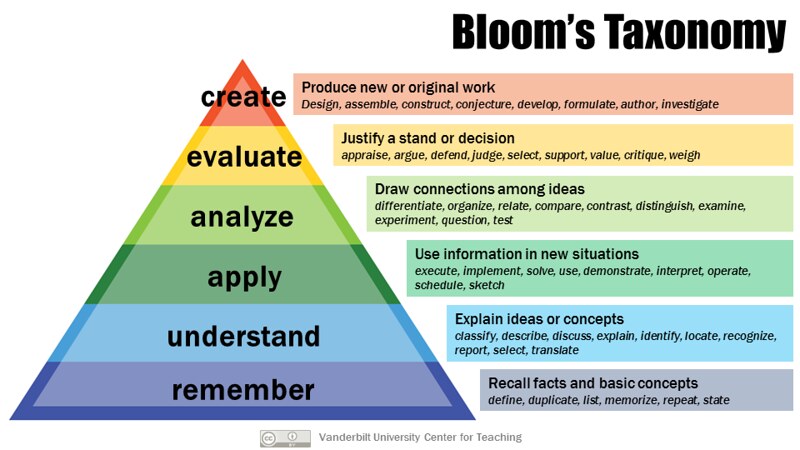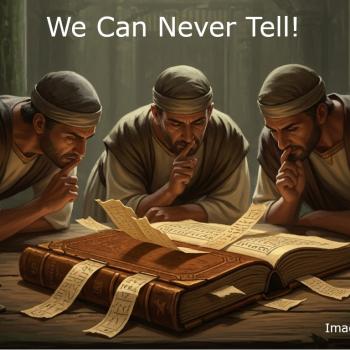Practical Spirituality series
“Does anyone really know what time it is?” asks the existential song by Chicago. “The song stresses the importance of taking time to appreciate the small pleasures in life instead of rushing from one place to another against the clock.” Been there, done that. Thought I would never get derailed. Having time to pursue my passions to help others is a wonderful gift.
“So Jesus answered them and said, “My teaching is not Mine, but His who sent Me.” John 7:16 (NASB)
“Take My yoke upon you and learn from Me, for I am gentle and humble in heart, and you will find rest for your souls. For My yoke is easy and My burden is light.” Matthew 11: 29,30

I’m not sure anyone should ever explain themselves. For example, parents should never ask why their child did something. I know now they don’t know why. They just do what they want at the moment. Behaviorism (operant conditioning) applies.
My choices and path in life has no immediate explanation. Most don’t. But like the back of a sewn picture, the back is an ugly mess, but the front is beautiful. Maybe my experience can help others who work in ministry.
I didn’t know what time it was in college. I struggled through college without grasping my genuine needs, and no one seemed aware what time it was. Too many were thinking the end of the time was near, inspired by The Late Great Planet Earth.
Before leaving college, I studied and wrote a long paper about messianic expectations in the 300 years before Jesus, followed by a book refuting this popularized idea that we were all going to die soon.
I appreciated the department chair’s review of the book, and I appreciated being one of the few invited to special events, but the book never got published. I knew nothing about publishing. We know very little that is necessary in this life. Each discovery we make in any field leads to even more profound questions. More recently along these lines I wrote Prophecy Series: Seven secrets – why the world won’t end in 2012. And The Prophetic Pattern: Ancient and Modern Prophecy.
Spiritual leaders
I deeply believe that pastors and spiritual leaders should possess a solid education to avoid mistakenly misleading people. Knowing just enough to be dangerous is not a plausible way to lead. If you’re going to work with people, it helps to understand people. Life is full of mystery that leads to misinterpretation and false deductions, so education is never finished. I wrote a long series on not being deceived by propaganda, since all of my work involves skilled communications.
The pursuit of higher knowledge is a thirst that can never be quenched. In the mid-1980s through the early 1990s, I had a side occupation as a screenplay and movie critic and wrote two books on writing screenplays. My initial thought was making Christian movies. I became a writer-producer-director later with STL Comedy, and still have Christian movies in mind. I make YouTube videos: New Generations Explore Faith – Podcast.
School systems used one of the books, How to Write a Screenplay, as an addition to their curriculum. It continues to be popular to this day. Since 1995, I’ve done little else but study in many fields, especially psychology and spirituality-religion. I even worked in AI.
I served as an assistant pastor at a large Christian church, and they had me slated to take over that ministry. The pastor conducted two funerals every week, and the frequency was expected to increase because of the congregation’s aging. Hospital visitation was endless. They were fiercely fighting change in their denomination. Nope. I left to pastor a smaller church.
Recently, I did a study on spirituality that lasted over a year. I showed through the research of scientists that higher levels of cognition are active in spirituality, and I broadened my understanding of spirituality. I’m a vigorous proponent of spiritual growth and have written a lot about it.
Does anyone really know what time it is? Time for all fools to be dead. Don’t you feel sick!
(Old joke; not my true feelings, but I can’t help writing comedy.)
The search for wisdom by pastors and spiritual leaders
Or how to find the right path forward
Assuming the premise that pastors and spiritual leaders should be well educated, I’ll share my thoughts with you. Jesus seemed to know all the scriptures, having sought them in his youth. He discussed religion with those in the know at the Temple. Evidence suggests his studies extended to India and Egypt. He was well educated for his primary mission to Judaism.
After listening to radio religious teachers like Oliver B. Green for two years, and endlessly studying the Bible, I realized that school knowledge isn’t wisdom. Wisdom is the product of education and experience. Wisdom is required for leading people.
My lifetime areas of study and praxis are theology and spirituality, social psychology, and true worship. I think these are essential for working with people. I search for the answers to questions like:
- How do you find meaning in life? I study and write extensively about it. How do you lead people without an understanding of how they focus their lives?
- What is spirituality? I write about this, especially through Jesus’ insights. I write especially for ages 15 to 30, such as my Patheos articles on New Generations Explore Faith, and my book New Generations Walk with Jesus. Spiritual growth I’ve written a lot about.
- How do we know the mind of God? I wrote Ontology of God (or the slightly less scholarly Appease the Volcano) which has as its premise: we can know the nature of God by what God asks of us. It traces the development of ideas about God, mercy, justice, and love through several religions up through the time of Jesus. I also write about eschatology in several books, such as The Prophetic Pattern: Ancient and Modern Prophecy, on prophecies and end times.
- Why do people act or behave the way they do? I integrate this into my ministry and the three courses I’m writing on how to make change, communications, and leadership.
- How do we understand what God asks of us (true worship) out of the voluminous, burdensome, and tortured books of the Bible and other religions? This is integral to all my writing. History is informative, but we create the future.
Why is the subject of learning so important? It encompasses the practical aspects of spirituality. We like to think that we are spiritual beings, but being physical has a purpose. We are physical people who experience things physically, so that we love, experience, and learn. Through this, we understand why things matter, and they become part of us. It isn’t possible to separate people from God in understanding these. God is in all of us.
We each have things to experience and learn, guided by God and chosen through our free will. Sometimes we get off the track, fooled by the illusions, temptations, and the social influences of life, and have to be brought back. Coming back often happens through spiritual or religious mechanisms when we recognize the folly of our ways and temptations.
Theology: My favorite theologian is Paul Tillich, although I don’t lean toward socialism. Since I studied economics, I understand that capitalism, while good, can be improved to serve all.
Tillich and I are both boundary thinkers between philosophy, theology, religion, and culture, and don’t fit into any category, not even theology. I reject labels–they create false impressions and expectations. People looking for a label are usually looking for shortcuts to thinking.
I consider religion to be culturally situated, but spirituality to be paramount. We are all responsible for ourselves, but we also have a role in others’ lives, as does religion. We both look at meaning and purpose in people’s lives.
Our thinking is similar but nuanced about God. Tillich rejects an authoritarian, top-down ‘God rules Man’ and ‘Man serves God’ religious approach, which I agree with. I think the love of God and love of others are symbiotic.
To know God, we can’t study God directly or know the full attributes of God. We see God reflected in God’s relationship with people. This necessitates studying both people and God.
We both see love and justice as unifying social forces. This comes through faith. Love and justice are spiritual in nature. I see faith as varied because God enables variety, but insists on true worship. True worship is found in loving God and loving others, which requires action. Each person has to encounter God in his own way.
Tillich defined morality as an expression of the individual, while I see morality as an expression of love for others. Same difference? To me, morals are situated in time and in love, although the commandments are basic. Our faith tells who we aspire to be. Our actions tell who we are. We’re all in the process of becoming.
We both studied the use of symbols, such as the cross. Tillich argued that religious language is symbolic, which means religious symbols communicate the most significant values and beliefs of human beings. They participate in that to which they point. I agree and study the intersection of brain-mind and spiritual.
I studied the use of language as symbols and how they operate in our mind, especially through Steven Harnad’s cognitive research on felt meaning and Eugene Gendlin’s research about experience being essential to symbols such as words. And of course, Umberto Eco on Semiotics (symbols). I wrote original work on visual semiotics.
Science shows that abstract and spiritual thought don’t occur in the same memory portions of the brain as most language. After twenty years of occasional study, I wrote about this in my Substack articles such as this one: The Brain Plugs Everything into Categories.
I’m not the academic theologian who sits in high places and elucidates profound ideas with other theologians. Nor am I an expert in ancient languages, like many of them, which takes lifetime dedication to languages. Interpreting languages from 2000 to 3500 years ago is difficult due to changing meanings. So I consult many experts to find passage meaning, and always consider context.
I was always a seeker of truth. I was baptized Methodist in my youth, but Christianity and Judaism had too many illogical and unjust beliefs for me, just as they do for many today. I’m very in tune to today’s generations, and I try to show their concerns are valid and interpret the Bible from the perspective of love.
Eventually, after following an extensive and serpentine seeker’s path, I came back to Jesus and eventually became a Follower of the Way, as the early followers of Jesus called themselves. Or Follower of Jesus. Having been in many denominations, I’m warm to Methodism again but want a firmer stand on LGBTQ acceptance. They are getting there.
The way Jesus and the prophets showed us to live represents truth. That way, which Jesus and the prophets showed us, represents truth and life, and anyone who seeks to know God and live as God asks us follows them, as Jesus pointed out. He even said those people will have a seat with him in Heaven. I’ve always felt the idea that two-thirds of the planet is going straight to Hell because they aren’t Christian is an affront to God. It isn’t the nature of God to create the children he loves just to destroy them.
Social psychology: I always wondered what made people tick and what made them do illogical things. After 50 years of studying them and observing their behavior, I concluded that most people over 40 can’t accept change in their way of life or thinking. Only a few people remain open-minded. Their patterns are perhaps the things they need to explore in this life. I also concluded that I’m not entirely logical either.
I self-studied social psychology in a university that didn’t include it in its curriculum, but emphasized behaviorism (now discredited) and directed students towards clinical psychology, which was unnecessary for me. I never aspired to be a clinician, but thanks to studying abnormal psychology, I recognize when pathology must be present. I’m not a therapist, but I have had to work with a few individuals with pathology when they refused to return to a clinical psychologist. That university now has one of the top social psychology graduate programs in the US. Argh! Does anyone know what time it is?
Psychologist Janis Irving, through his research publications, was my muse in college. Social psychology holds the explanation for why most of us do things: belief, emotion, and behavior. Cognitive Behavioral Therapy (CBT) was founded on attitude psychology and has become very popular. This method of looking at people rarely fails, although it can explain but not predict behavior. People be crazy. God creates endless variety.
Conclusion
Like the Alanis Morissette – Hand In My Pocket (Lyrics), “I haven’t got it all figured out just yet,” I still don’t know what I want to be when I grow up, but I’m getting closer.
Many have very different educations than I have. Like me, many learn endlessly. I had few advantages for getting education and in my primary education was a noted under-performer. In my later years, very few individuals were available to guide religious and spiritual leaders in relevant education. Seminary or a university with religious studies do not have notable reputations for educating students in working with people. I was on my own.
An example of why education or using others as resources is necessary is in helping the needy. You have to differentiate between those who you can empower to become self-sufficient, and those who would become reliant on you indefinitely. Those working in the social sciences are better equipped to do this. In one church, I worked on the board with this type of community outreach, as well as working with an alternative to jail for youth program. Education and experience in this area help immensely.
I also highly recommend courses on critical thinking, leadership, and recognizing propaganda. The world is very short on those skills and they are essential.
Hopefully, this article will help others determine what is essential. But God also places desires in your heart. What’s right for one person isn’t right for another.
Probability Space
What probability spaces can we open in our minds to focus on how to use education to unwind the Gordian Knot of life’s complications and make life more just and fair. (A Gordian Knot can’t be unraveled.)
Do we understand economics or do we parrot others’ ideas? Do we understand how wealth is transferred from the poor to the super-wealthy, who now have more wealth than most of the nations combined? Do we understand the politics of social issues, or do we just parrot others’ ideas? Countless individuals seek our support to endorse and perpetuate their positions on issues, but are they genuine or just misinforming and using us?
Can you advise people on AI and coming developments in the field of employment and economics? The world is complex and it’s very hard to keep up. Thankfully I have the right background and skills. I try to help others with this in my book, Preparing For The Future Of Work, Education, Economy. It took over a year to research and write, and it’s free.
Announcing a New Paradigm for Economics and Beyond.
Systemic and intractable problems – Part 3 – inner cities.
Potential Space
If you think creatively and allow your mind to wander and explore, how can we make the world more just and fair in the realm of economics?
– Dorian
Our answer is God. God’s answer is us. Together we make the world better.











